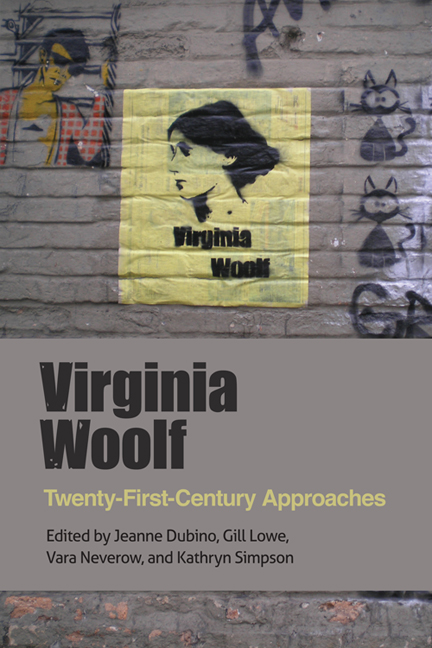Book contents
- Frontmatter
- Contents
- Acknowledgements
- Contributors
- Abbreviations
- Introduction
- PART ONE Self and Identity
- PART TWO Language and Translation
- PART THREE Culture and Commodification
- PART FOUR Human, Animal, and Nonhuman
- PART FIVE Genders, Sexualities, and Multiplicities
- 9 Indecency: Jacob's Room, Modernist Homosexuality, and the Culture of War
- 10 Multiple Anonymities: Resonances of Fielding's The Female Husband in Orlando and A Room of One's Own
- 11 Two-Spirits and Gender Variance in Virginia Woolf's Orlando and Louise Erdrich's The Last Report on the Miracles at Little No Horse
- Index
11 - Two-Spirits and Gender Variance in Virginia Woolf's Orlando and Louise Erdrich's The Last Report on the Miracles at Little No Horse
from PART FIVE - Genders, Sexualities, and Multiplicities
Published online by Cambridge University Press: 05 August 2016
- Frontmatter
- Contents
- Acknowledgements
- Contributors
- Abbreviations
- Introduction
- PART ONE Self and Identity
- PART TWO Language and Translation
- PART THREE Culture and Commodification
- PART FOUR Human, Animal, and Nonhuman
- PART FIVE Genders, Sexualities, and Multiplicities
- 9 Indecency: Jacob's Room, Modernist Homosexuality, and the Culture of War
- 10 Multiple Anonymities: Resonances of Fielding's The Female Husband in Orlando and A Room of One's Own
- 11 Two-Spirits and Gender Variance in Virginia Woolf's Orlando and Louise Erdrich's The Last Report on the Miracles at Little No Horse
- Index
Summary
Innovative concepts of gender abound in Virginia Woolf's Orlando (1928) and Louise Erdrich's The Last Report on the Miracles at Little No Horse (2001). In Woolf's novel, Orlando undergoes a seemingly unwilled biological change from male to female, while in The Last Report on the Miracles at Little No Horse, a white woman, Agnes DeWitt, adopts a lifelong disguise as a Catholic priest at an Ojibwe outpost in North Dakota. At first glance, novels by a modernist English writer and a contemporary Native American one may seem unlikely bedfellows; indeed, there are significant differences between their explorations of gender identity. Each novel speaks to other important issues as well: Orlando is at once a new kind of biography, an homage to Vita Sackville-West, and a tour through (and parody of) English literary history. The Last Report interweaves Ojibwe history and culture to depict the devastating effects of colonisation upon the Ojibwe as well as their means of survival, including storytelling, along with an ability to integrate conflicting cultural mores. A closer look, however, reveals significant affinities between these works, whose cataclysmic weather events and protagonists’ long, deep sleeps precipitate singular gender experiences over vast spans of time.
While this paper discusses Western gender theory, I wish to explore gender in Orlando and The Last Report primarily through my understanding of Native American gender traditions, particularly that of the two-spirit. Coined in 1990 at the third Native American/First Nations gay and lesbian conference, the term two-spirit denotes Native American/First Nations individuals who elect not to live by strict gender binaries. Sue-Ellen Jacobs et al. note that in ‘Native North America, there were and still are cultures in which more than two gender categories are marked’ (1997: 2); in many instances, two-spirit people were highly valued for their unique capabilities and contributions to the tribe and for their heightened spirituality. Lang further explains, ‘Two-spirit statuses and roles reflect worldviews found widely in Native American cultures, which appreciate and recognize ambivalence and change both in individuals and in the world at large’ (Lang 1997: 103).
- Type
- Chapter
- Information
- Virginia WoolfTwenty-First-Century Approaches, pp. 205 - 222Publisher: Edinburgh University PressPrint publication year: 2014



